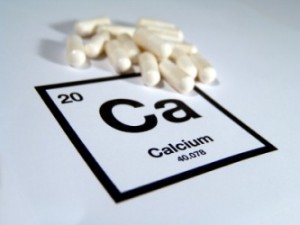 If you’ve been taking calcium supplements as prevention against osteoporosis and then quit because of the concerning findings of previous studies – you may not have needed to, says a new Harvard study.
If you’ve been taking calcium supplements as prevention against osteoporosis and then quit because of the concerning findings of previous studies – you may not have needed to, says a new Harvard study.
In an earlier HealthyAnswers newsletter article [Why You May Want to Stop taking Calcium Supplements, September 2012], I alerted my readers to research findings from both German and New Zealand studies that suggested the possible dangers of taking calcium supplements.
Yet, this new study, out of a Harvard Medical School division, the Institute for Aging Research (IFAR) at Hebrew SeniorLife, had quite different findings from these previous studies. I’d like to share those with you here and let you be the judge.
The Jury’s In Again – Harvard Study Says Calcium Supplements Okay
In a Science Daily news release, [No link found between calcium intake and coronary artery calcification, November 7, 2012], it was reported that this Harvard Medical School group recently published new, encouraging findings about calcium supplements in the American Journal of Clinical Nutrition.
In their study, the IFAR found that ‘there is no evidence of a link between calcium intake and coronary artery calcification’. Further, the authors of the new study want to reassure people, who take calcium supplements for bone health, that these supplements do not appear to cause calcified blood vessels.
The IFAR’s research study looked at 1600 participants from the Framingham Heart Study, both men and women aged 60 and over, who had the highest calcium intake from either supplements or diet. They found that both groups had the same coronary artery calcification score.
This score represents the severity of calcified plaques blocking heart arteries. The score is one predictive measure of who may be at highest risk for heart attack. But, as the lead author of the study, Elizabeth (Lisa) Samelson, Ph.D., associate scientist at IFAR, explained, “There was no increased risk of calcified arteries with higher amounts of calcium intake from food or supplements.”
The take-away conclusion from this new study, as the Institute of Medicine (IOM) explained, was that ‘evidence from clinical trials does not support an adverse effect of calcium intake on risk of cardiovascular disease.’
The IOM also recommended that calcium supplements can be used if the minimum calcium requirements are not being met through diet. They also recommended the following guidelines are safe and effective for bone health:
Women over 50/Men Over 70: 1,200 mg per day of calcium
Men aged 50-70: 1,000 mg per day.
Other Voices, Other Opinions
In reading these new research findings, I also wanted to get the opinions/recommendations from respected doctors to see what they thought of both the previous studies, and the current Harvard study. Here’s what I found:
Dr. Deepak Bhatt, a cardiologist at Harvard-affiliated Brigham and Women’s Hospital: In the Harvard Medical School Heart Health blog, Dr. Bhatt commented on the previous German study. “The study did not provide iron-clad evidence of a connection between calcium supplements and heart attack. People, on their doctor’s advice, should get some of the recommended 1,000 to 1,200 milligrams of calcium a day through supplements because they can’t get that amount from food. It’s perfectly reasonable to stick with these recommendations regarding calcium intake for now.”
Richard Lee, M.D., cardiologist, and co-editor of the Harvard Heart Letter: In the same blog, Dr. Lee explained that ‘calcium supplements have not been proven safe without a doubt, and most people can get enough calcium through diet’. He went on to say that “I don’t think people should take calcium supplements unless they understand there may be a heart hazard that appears in the future. When people really pin me down, I tell them to take a once-a-day multivitamin and eat a balanced diet. That is plenty for almost everyone.”
My Recommendations
The current findings, backed up by the Institute of Medicine, suggest that there is no evidence that calcium supplements cause calcification of arterial plaques and you can safely take calcium supplements according to their guidelines.
I would just add one additional guideline to theirs and that is to take no more than 1,200 mg, in divided 300 mg doses, 4 times a day. Your body can better absorb calcium a little at a time.
Stay Well,
Mark Rosenberg, M.D.
Natural Health News
No link found between calcium intake and coronary artery calcification, http://www.sciencedaily.com/releases/2012/11/121107145931.htm
Link between calcium supplements and heart disease raises the question: Take them or toss them? http://www.health.harvard.edu/blog/link-between-calcium-supplements-and-heart-disease-raises-the-question-take-them-or-toss-them-201205304813
Why You May Want To Stop Taking Calcium Supplements, https://healthyanswers.com/general_articles/2012/09/why-you-may-want-to-stop-taking-calcium-supplements/
photo credit: science.yourdictionary.com
